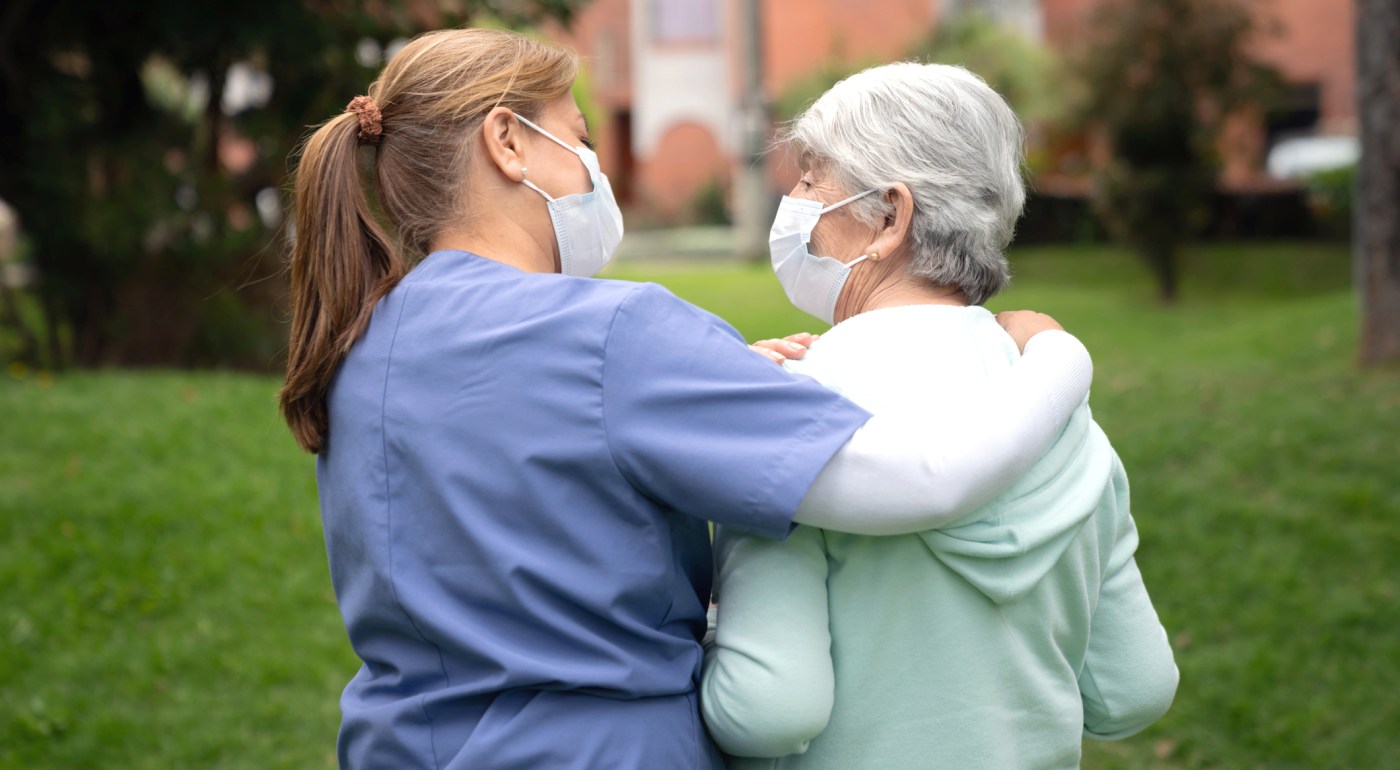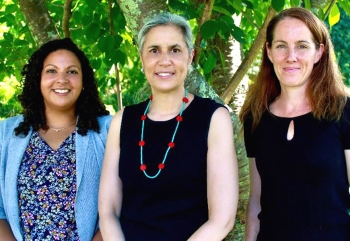There are many aging Veterans in this stat: About 30 percent of people aged 65 and over require specialized geriatric care, usually starting around age 70.
VA’s Geriatric Research, Education, and Clinical Centers (GRECCs) help Veterans by developing ways to keep them healthy and engaged well into their senior years.
Established in 1975, GRECCs have shaped VHA’s best practices for geriatric Veteran care. Today, 20 GRECCs across the nation impact how VA:
- Helps Veterans manage diseases such as Alzheimer’s
- Uses telemedicine to increase Veteran engagement
- Conducts cutting-edge research on topics related to aging
An important part of this work is providing training and education for health professions trainees and VA staff, in both clinical and research roles on caring for older adults.
My life, my story
Leading the way in how GRECCs bolster VA’s education mission is the Bedford VA GRECC. Occupational Therapy trainees turned to telehealth technologies throughout the pandemic to help Veterans with cognitive concerns contribute to My life, My story.
My life, My story began in 2013 as a way for Veterans to share their stories with VA health care professionals, enabling the health care team to know their Veteran patients better. The program is active in more than 60 VA health care locations.
“People with dementia often lose their most recent memories first,” said Dr. Lauren Moo, GRECC Bedford site director. “What’s most vivid to them are those early years, including their service time and moments like how they met their spouse. Using telehealth to reach this vulnerable population allows trainees to learn more about the Veterans’ stories, while keeping Veterans engaged.”
Growing need
With over 6.2 million Vietnam Veterans who have an average age of about 70, many may soon need geriatric services.
“We’re seeing more Vietnam-era Veterans. One of the strengths GRECCs bring is our interdisciplinary teams that work together to address complex presentations, said Christine Gould, associate director for education and evaluation with the Palo Alto GRECC. “These include comorbid medical conditions, as well as cognitive, psychiatric and psychological challenges that some Vietnam era Veterans have.”
Filling a critical gap
The U.S. is currently experiencing a shortage of geriatricians. GRECCS, along with their academic affiliations, such as Tufts University and Stanford University, provide opportunities to fill this critical gap.
Dr. John Pollard, the associate chief of staff for education at the Palo Alto GRECC, oversees 700 residents and over 400 non-physician trainees each year. “Having a strong research and clinical program like GRECC increases the visibility of this field and hopefully will attract more physicians to the field, both for research and for patient care,” Pollard said.
Passion to learn. Power to heal.
VA conducts its training programs for more than 120,000 health professions trainees annually in affiliation with over 1,800 educational institutions across the country, including 97% of the United States’ medical colleges.
These academic affiliations are coordinated by VA’s Office of Academic Affiliations (OAA). Find out more about OAA at this website and by watching this video.
- Learn more about VA services, supports, and resources for older Veterans and those with extended care needs and their families.
- Learn more about how VA is commemorating the 5oth anniversary of National Vietnam War Veterans Day during 2021.
Topics in this story
More Stories
The 2024 National Veteran Suicide Prevention Annual Report provides the foundation for VA’s suicide prevention programs and initiatives.
Theranostics is a specialized field of nuclear medicine that uses a two-pronged approach to diagnose and treat cancer.
Air Force Veteran Shireta Jones overcomes obstacles with support from VA and adaptive devices to continue her passion for pickleball.








The VA Hospital at Portland Oregon has been very helpful in helping me with my health! I do have to drive about 200 miles one way to get there but the nurses and doctors are great!
I find the health care at Northport VA hospital at both extremes. Excellent cardio care very poor primary care no consistency with primary doctors, every visit I see a new doctor and have to recite a lengthy history all over again, educating each doctor takes up at least 90 percent of the visit
The phone wait time making appointments averages 10-20 minutes or more at the call center At least a third of the time they tell me they never got the message
Your mention of problems with recent memories is a definite bother to me. Any help would be appreciated.
Joe Bilotti